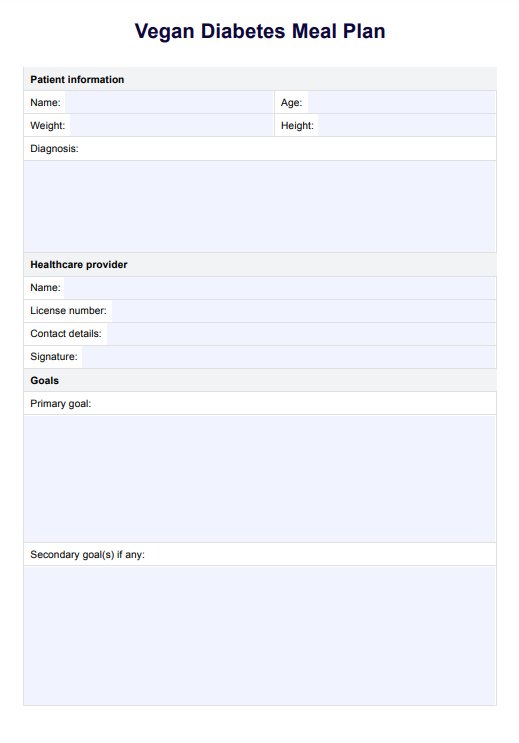It may not necessarily reverse but help in remission. A study entitled Remission of type 2 diabetes after treatment with a high-fiber, low-fat, plant-predominant diet intervention: a case series conducted by Panigrahi and colleagues in 2023 shows that a third of the people with diabetes they've examined have had a remission of their diagnoses by strictly following a low-fat, whole-food, and plant-predominant diet.

Vegan Diabetes Meal Plan
Collaborate with patients to plan healthier meals that align with their needs with our Vegan Diabetes Meal Plan.
Use Template
Vegan Diabetes Meal Plan Template
Commonly asked questions
Yes. This is a better choice than regular mayo because it has fewer calories and a much lower amount of saturated fat. Saturated fat is a type of fat that needs to be avoided.
Yes. Vegan diets are rich in antioxidants and can prevent and manage several health issues. However, for such a diet to be truly healthy, a person should still get the necessary nutrients and minerals. Well-planned vegan diets should do just that.
EHR and practice management software
Get started for free
*No credit card required
Free
$0/usd
Unlimited clients
Telehealth
1GB of storage
Client portal text
Automated billing and online payments











